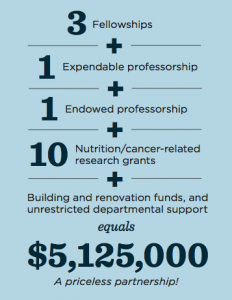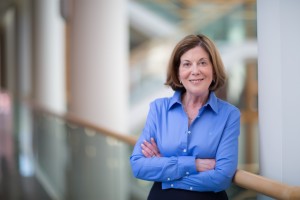Impact of Giving
Staying involved and giving back
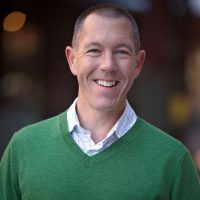
Dr. Todd A. Durham
Todd A. Durham, PhD ’16 (health policy and management), MS ’95 (biostatistics), and his wife, Heidi P. Durham, PharmD, are planning for the future. They’re not just thinking of themselves but also about family, their state and public health. They recently made a planned gift by donating an independent retirement account to the Gillings School to support priority initiatives under the discretion of the dean.
“We are pleased to contribute to the UNC Gillings School of Global Public Health, its future success and the improved health of the citizens of North Carolina and the world in this way.”
Read moreTodd is deeply connected to the Gillings School; as well as being an alum, he serves on the board of the UNC Gillings Public Health Foundation (PHF) — a 501(c)3 organization that manages the School’s endowments and charitable gifts. These experiences give him and Heidi confidence the value of their gift will be maximized in service of a healthier N.C.
The Durhams valued their time at UNC and wanted to give back to the institution that helped launch their careers. In addition to Todd’s service, they chose to make a planned gift to provide broad, enduring support to the Gillings School.
“Whatever success I’ve had professionally – which also translates to money in the bank and the ability to live a comfortable life – started with Gillings and an excellent education,” said Todd.
While many donors give to funds that are restricted to allow support only for a specific program or area of the School, the Durhams know from experience as students in multiple departments, and from Todd’s service on the Foundation board, that educating a world-class public health workforce requires support and contributions of many different types.
Their contribution to the PHF will provide flexibility to address current and emerging needs.
Because they can provide support for student, faculty or programmatic needs, unrestricted funds can be directed where they will make the greatest difference and can even amplify the impact of other gifts – existing scholarships or professorships that respond to specific needs. Unrestricted funds can be used to address a diverse array of needs, including retaining star faculty and staff and special projects that keep the School strong. They allow the dean to pivot in response to emerging needs and opportunities, from fostering collaboration across campus to upgrading facilities for pandemic safety.
“People invested in students like me, and it is very important to pay it forward,” said Todd. “We want to make sure the Gillings School is still successful and an attractive place for the next generation. Making a planned gift was the best way for us to make a big impact on that pool of unrestricted funds. Whether to attract students or deal with emergencies, I know it will be used well.”
His service on the board that manages those funds is part of the reason for Todd’s confidence. He describes his role on the Foundation’s Board of Directors as “a significant one.”
“We are in a role of providing responsible oversight of those funds and ensuring they’re used as well as carrying out accounting principles,” he said. “It’s important for any organization to have outside oversight, and that is one of the reasons people should have confidence giving large gifts to the Gillings School. By monitoring how the funds are directed, we’re helping ensure its faculty and staff are acting ethically and in the interest of the School. It’s about transparency and accountability.”
The depth of talent, public-focused mission and dedicated community that power the Gillings School make it uniquely fertile ground for those seeking to fuel positive change. In fact, Gillings faculty members have brought in an average of $1.09 million per faculty principal investigator in research awards. The Durhams’ investment will be measured in student and faculty success, thriving communities and a healthier world.
After earning a Master of Science degree in public health, Todd went into the contract research and pharmaceutical industry, working in statistical and leadership roles with Bristol Myers Squibb, Novan, Inspire Pharmaceuticals, Quintiles and IQVIA before pivoting to the nonprofit sector. As well as serving as vice president of clinical outcomes research at the Foundation Fighting Blindness, he volunteers as board president of the Affordable Community Residence Association, which provides affordable housing and supportive services to people with HIV and disabilities.
Todd is quick to acknowledge the ways in which the Gillings community has supported him along the way, pointing to mentorship he received as well as his current network that includes many other Gillings alums. He became involved again in the school when he was nominated to serve on the PHF Board – by none other than his college roommate, Todd A. Jones, JD, BSPH ’93 (health policy and management), former chair of the UNC Gillings Alumni Association Advisory Board.
“One thing that sets alums apart is having a vested interest and caring enough about the school to make sure it continues to support others the way it supported you,” said Durham. “One of the most important things I’ve learned is that support of the school doesn’t end when you finish paying tuition. They continue to need the funds to do the things great institutions do. And we need the involvement of alumni and others. It’s not just a place where you get a degree.”
Endowment honors Aitken’s commitment to innovation during Environmental Science and Engineering centennial
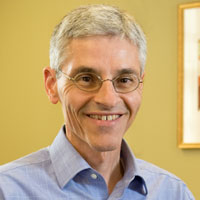
Dr. Michael Aitken
As part of a series of events to mark its centennial, the Department of Environmental Sciences and Engineering (ESE) at the UNC Gillings School of Global Public Health held a symposium in early November 2021 that included a special dedication to the late Michael Aitken, PhD, and the announcement of an endowment established in his name.
The Michael D. Aitken Endowment for Environmental Sciences and Engineering supports the entire department by providing discretionary funds to ESE’s chair. These discretionary funds will enable the chair to respond to opportunities and needs as ESE faculty and students pursue solutions to emerging threats to the environment and public health and well-being.
Read moreAs an individual and a leader, Aitken focused on minimizing and remediating human impacts on the environment. Practicing what he preached, he rode his bike to work every day, and as a leader, he did the most with the tools at his disposal — seeing the potential to use resources to accomplish real and lasting good.
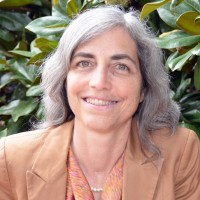
Dr. Barbara J. Turpin
“As chair, Mike prioritized the department’s most valuable resources, our junior faculty and students,” said Barbara J. Turpin, PhD, professor and chair of ESE. “He was also very good at communicating what a special place ESE is. We will benefit from these investments for a long time to come.”
Aitken was chair of the Department of Environmental Sciences and Engineering from 2006–2016, and according to his wife, Betsy Bea Rudolph, he would have greatly appreciated having a fund like this to use on deserving projects and initiatives during his time as chair.
Aitken was committed to doing the dirty work, exploring innovative methods to clean up environmental disasters at U.S. Superfund sites, and his research and leadership found a natural fit in the Gillings School’s ESE department. Combining environmental health, science and engineering, the department is uniquely positioned to address environmental challenges that are increasingly complex and require solutions that are integrated and holistic. Faculty and students in ESE are increasingly planning for and responding to emerging public health threats, including those posed by aerosol-borne viruses, contaminated floodwaters, antibiotic resistance, the increasing effects of drought-induced wildfires on air quality, and water shortages driven by climate change.
The department celebrated its centennial by affirming its commitment to provide environmental solutions for public health protection and to build resilience to climate and environmental change. This affirmation continues a century of impact in North Carolina and worldwide. It began with a need to improve water safety in towns and cities across N.C. in 1920, followed by providing the first director of environmental health for the World Health Organization. By the ‘70s, 25% of ESE graduates were working with international health organizations and foreign governments. And today’s contributions include Superfund research, understanding exposures to per- and polyfluoroalkyl substances (“PFAS forever chemicals”), global efforts to provide safe drinking water through the UNC Water Institute, and contributions to atmospheric chemistry and the global burden of disease from air pollution. The symposium where Aitken’s endowment was announced was named in honor of the late Philip C. Singer, PhD, a nationally renowned expert in water-quality issues and a member of the National Academy of Engineering.
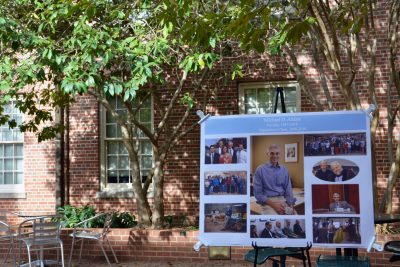
The dedication to Dr. Aitken took place in the Rosenau Courtyard at the Gillings School
This endowment will support work in ESE that has lasting implications for all of us as well as our water, air and soil. By joining with Betsy to support this fund, you can increase this impact. Make a contribution to the Michael D. Aitken Endowment for Environmental Sciences and Engineering today to support the next century of innovation. Any questions can be directed to Matt Cain, MEd, director of development, at mattcain@email.unc.edu.
Read more about Aitken’s legacy.
The power of data – and the importance of giving back
Discussion with Brenda Edwards
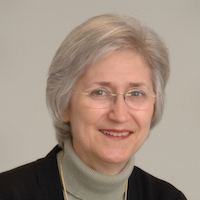
Dr. Brenda Edwards
Brenda K. Edwards, PhD, is senior adviser for cancer surveillance in the National Cancer Institute’s (NCI) Division of Cancer Control and Population Sciences. She has helped make the NCI’s Surveillance, Epidemiology and End Results program — a cancer database that covers more than one-third of the United States population — an important resource to improve our understanding of cancer and treatment. Brenda received a Doctor of Philosophy degree in biostatistics from the UNC Gillings School of Global Public Health in 1975, but her involvement did not stop there. She established the Brenda K. Edwards fellowship to support graduate education in the field. We caught up with Brenda in the interview below.
Tell us a bit about the fellowship and why it is important.
I think this type of support is essential. When I went to North Carolina, there was a sense that more people were needed in biostatistics, and I benefited from a government-funded training program. I was very fortunate that not only was my tuition covered, but I received a stipend as well. Today that’s very hard to manage.
Right now, times are trying for people who work in public health. Public attitudes toward their work are mixed, so I think it’s a particularly important time to support the field.
What led you to attend the Gillings School?
Read moreI once heard someone say that their life was not a straight line, more like a zigzag, and I think that applies to me. Starting out, I had an interest in math and biology; I couldn’t decide, so I majored in both!
One day, when I was looking into graduate school, I saw a notice on a bulletin board about biostatistics and realized that it combined my interests in biology and mathematics. I ended up going to a master’s program at Vanderbilt, which was not so far away from western Kentucky, where I’m from. I said to myself, “I like this field, let me consider going on.”
I accompanied a colleague to a football game in Chapel Hill, and it was just a beautiful fall day! That experience helped me get comfortable with going to a doctoral program in public health at the University of North Carolina. I was also impressed that, even though Bernard Greenberg was very well-known, he was willing to spend time on the phone with me, and he was very enthusiastic about biostatistics!
What led you to a career in cancer monitoring?
Though I got into the field by accident, I think we all are touched by cancer, whether its family, friends or others. In the early days, there was so much stigma, but working in treatment, I could actually see those who are trying to find solutions; and that really made it relevant to me.
After receiving a PhD, I taught for three years of University of Cincinnati, but I hadn’t worked on very many projects. I thought the National Institutes of Health would be a good place to expand my skills, and I ended up getting a call back from the National Cancer Institute (NCI). There, I was able to do some quite interesting work in cancer treatment and later some of the earliest cancer prevention trials that were conducted.
I believe that you need to be open to opportunity and where there’s need. I got into surveillance because somebody retired, but I ended up working there for many, many years. Now I spend a fair amount of my time advising — some internationally, with people who are trying to develop population-based data systems for cancer. Our job is to figure out who gets cancer and what happens to them when they get it.
How would you explain the field of biostatistics to someone who did not understand it?
Statistics give a quantitative picture of research that is trying to ask important questions and find an answer — whether you’re setting up clinical trials or other studies. Biostatisticians work with those who know the content area of study but need the data. It’s always useful to ask a good question as Dr. Greenberg used to say.
Have you been involved in the COVID-19 pandemic response?
The closest I’m coming to COVID is to participate in reviews of proposals for funding. For example, in the summer of 2020 and again this year I participated in reviews of COVID research projects.
Why did you choose the Gillings School to establish this fellowship?
The Chapel Hill environment played a large roll for me. North Carolina has always had strong program; it was challenging and called upon you to be your best, and this was reflected in the people — the faculty, staff and students. It is and was a good environment to be productive in.
My time at Gillings also made me aware of the international relevance of biostatistics and the importance of having a school that can help train individuals – most of whom went back to their own country and taught. In a subliminal way, it has modeled what I’ve seen happen throughout my career.
What do you want its legacy to be?
There is always a need. It’s essential to have this type of support. I was supported, and this is a way for me to give back. I can say that it’s been my life experience that one contributes in whatever way they can; it’s our responsibility. I’ve also been inspired by the things Gillings students are contributing.
My life and work have involved coordinating and collaborating with many individuals and working across institutes — NCI, the CDC and other professional and civic groups. I think that it is essential to find those things that bring us together more than what keeps us apart.
Q&A with Chen-Yu Yen
Alumnus establishes fellowship for international students
We envision a world in which talented, educated people can become better stewards for our planet. — Dr. Chen-Yu Yen
In August 2015, Crystal Hinson Miller, MA, CFRE, associate dean for advancement at the UNC Gillings School, sat down to chat with Chen-Yu Yen, PhD, and his wife, Ray-Whay. Dr. Yen, a 1983 alumnus and current member of the School’s Public Health Foundation board, and his wife have made a significant gift to the School to support international students – the Chen-Yu and Ray-Whay Yen Expendable Graduate Fellowship.
Crystal Hinson Miller: Tell us about your experiences as international students.
Chen-Yu Yen: The opportunity to get a top-notch education was the most important reason that we came from Taiwan to the U.S. in the 1970s. UNC-Chapel Hill was renowned in the fields we had chosen to study. The UNC Department of Chemistry gave me a teaching assistantship, without which I would not have been able to attend graduate school abroad, and we were lucky that the N.C. State University Department of Genetics offered Ray-Whay a position so that she could join me. Without financial assistance, we would not be here today. This is part of the reason we set up a fellowship for international students at the Gillings School. [Full Story]
Updated August 28, 2018: Gillings School notes the passing of alumnus and friend Chen-Yu Yen
American Institute for Cancer Research
AICR provides longstanding support for innovative nutrition and cancer research
The professorship has allowed me to pursue my passion and enhance the field of obesity and cancer research. — Dr. June Stevens.
“The UNC Gillings School depends so much upon organizations and individuals who provide continuing support for the School’s mission,” says Crystal Hinson Miller, MA, CFRE, associate dean for advancement at the School. “Longstanding and broad-based support has made a huge difference in what we’re able to accomplish – helping us to engage in cutting- edge research, translate our academic research into solutions for local and global communities, and educate tomorrow’s public health leaders.”
Since 1997, the American Institute for Cancer Research (AICR) and its executive vice president Kelly B. Browning, emeritus Public Health Foundation board member, have provided that type of invaluable support, primarily through the School’s Department of Nutrition. AICR has funded fellowships, professorships, research grants, and other building and departmental support. [Full Story]
The Priscilla Alden Guild Scholarship
Meeting Gillings School students today, preparing the School for tomorrow
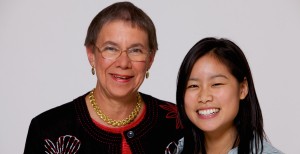
Priscilla Guild with Alice Wang (Photo by Tom Fuldner)
My parents believed in higher education. They were proud to have earned university degrees, and they made a point of giving back to the schools that made them who they were. During most years of their lives – and even as part of their estate plans – they made sure that other students would have the opportunities that good fortune gave to them.
They were great role models.
Since I attribute much of my success in life to my graduate education, I have been gratified to support my alma mater, the UNC Gillings School of Global Public Health, every year since I graduated in 1971. [Full Story]
Dorothy Dunn
She gave back to a School where opportunities and support helped her thrive
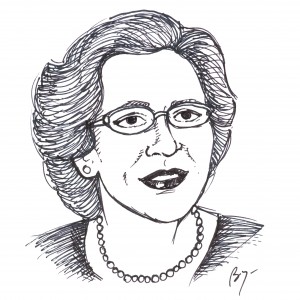
Dorothy Dunn (Sketch by Bryan Norris © 2015)
Dorothy Dunn’s Bachelor of Science degree from the University of Illinois led her to a number of job opportunities in the U.S. Department of Agriculture. However, after a former sociology professor praised the dynamic environment at UNC’s public health school, Dunn sought a stipend from the U.S. Public Health Service and was accepted as a Master of Science in Public Health student at UNC.
She studied epidemiology with founding dean Milton Rosenau, MD, and was mentored by Lucy Morgan, PhD, founding chair of the health education department. Morgan and faculty member Eunice “Picky” Tyler were instrumental in encouraging Dunn to pursue a doctoral degree.
“I later earned my PhD from another university,” she told an interviewer in 2000. “[But] I can say definitively that I got more out of my energy and efforts at the UNC School of Public Health than at any other school I attended.” [Full Story]
Hanna Lerner
Dunn Scholar uses mHealth to reach new populations
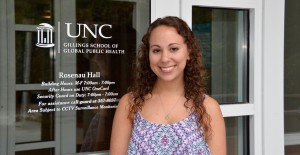
Hannah Lerner (photo by Jennie Saia)
Not everyone who needs regular care can afford frequent visits to a doctor. mHealth tools can support patients who are trying to lose weight, manage pain or accomplish other health goals. The possibilities are endless. — Hannah Lerner
Hannah Lerner doesn’t want to treat health problems. She wants to prevent them. As an undergraduate, Hannah studied biology with the aim of going to medical school, but after learning more about public health, she changed her mind. [Full Story]
The Irving and Joan Rimer Scholarship
A gift that will keep giving
This gift has given me more joy than I ever could have imagined — and it will keep giving. — Dean Barbara K. Rimer
Planned giving is a perfect mechanism for those of us who aren’t wealthy but want to leave behind something important — a statement of our priorities, passions and values. I couldn’t immediately establish an endowed scholarship, but my lifetime of work would accumulate such that I could fund a scholarship at the time of my passing. When my husband and I revised our wills several years ago, we agreed that resources from my estate would be allocated for an endowed scholarship. [Full Story]
Dennis and Mireille Gillings Global Public Health Fellowships
Training scientists at Institut Pasteur
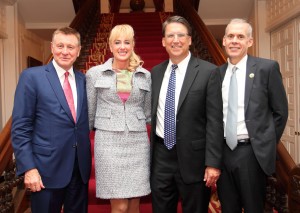
Left to right are Drs. Dennis and Mireille Gillings, Gov. McCrory and Tom Pike, chief executive officer of Quintiles. (Photo by Capellino Imaging)
I am proud to support these fellowships, and I wish Patsy and Maya professional success and personal fulfillment in their time at the Institut Pasteur — and throughout their careers. It’s clear that we can expect great advances in the public health field from these dedicated and talented women. — Dr. Mireille Gillings
As an undergraduate in Montreal, Mireille Gillings, PhD, became intrigued by the benefits of international scientific collaboration and data sharing. This interest increased during her time as a graduate student in the Netherlands and as a postdoctoral researcher in Bordeaux, France, and San Diego, California.
“Dynamic scientific collaboration across cultures and continents is vital in driving advances in public health,” Dr. Gillings says. “Future public health leaders will rely on this collaboration, along with skills in setting strategy, identifying measurable targets and managing budgets. Our goal is to produce leaders who can navigate the complexity of partnering money and medicine and steer society through threats of pandemics, toward more healthy behaviors and healthy aging.” [Full Story]
New Professorship in Dental Public Health Established
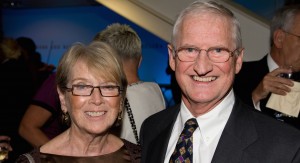
Joy and Chester Douglass
Gary’s transformative work, Dennis’ innovations, and seeing the mission of the University of North Carolina’s public health school through their eyes have made me want to give back to the School that facilitated my association with these extraordinary leaders. — Chester Douglass
The UNC School of Dentistry and the UNC Gillings School of Global Public Health announced the establishment of a new dental public health professorship on June 5. Made possible by a gift from Chester Douglass, DMD, PhD, and Joy Douglass, the R. Gary Rozier and Chester W. Douglass Distinguished Professorship in Dental Public Health will support a jointly appointed faculty member who specializes in dental public health. [Full Story]
Jill and Michael Kafrissen, In Support of Research on Aging
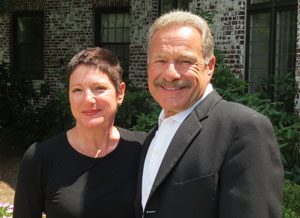
Jill and Mike Kafrissen
Aging is a universal reality that will benefit from our best thinking, now and in the future, and the Gillings School is and will be an important source of these benefits. Our conversations with Dean Rimer and other School leaders have confirmed for us the School’s commitment to innovative solutions and a sustainable and valuable program. — Jill Kafrissen
As the population of older adults grows globally, Jill and Michael Kafrissen want to bring more resources to meet the many challenges that come with aging.
Their concern is evidenced in their professional lives. Jill Kafrissen, LCSW, has broad experience in social work, legislative advocacy and philanthropic activities. Michael Kafrissen, MD, MSPH, who has had a long career in public health and pharmaceuticals, is currently chief executive officer of STE Health International LLC, director of research and innovation for UNC–Chapel Hill’s World Health Organization Collaboration Center, based in the Gillings School’s maternal and child health department, and a researcher at Massachusetts Institute of Technology’s AgeLab. The AgeLab invents and translates technologies to
address the practical issues of aging. [Full Story]
Paula Brown Stafford, In Gratitude for a Wonderful Career
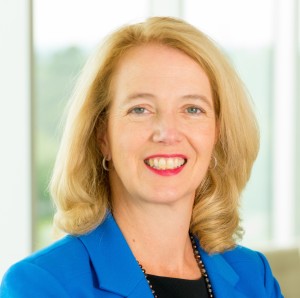
Paula Brown Stafford
If it weren’t for Craig Turnbull, I wouldn’t have been at the right place at the right time to be blessed by such a wonderful career. — Paula Brown Stafford
Fortunate is the graduate who can reflect on her college years and name a professor whose influence has shaped her life and career. For Paula Brown Stafford, one of those professors was Craig Turnbull, PhD. Turnbull established the UNC biostatistics department’s Bachelor of Science in Public Health program in 1975 and led it until his retirement in 2006. The program was the first of its kind in the country and has served as a model for others. Turnbull was on the UNC public health school’s faculty for 35 years, enabling hundreds of students to find rewarding careers in public health and medicine. [Full Story]
Shults Funds Injury Prevention Scholarship
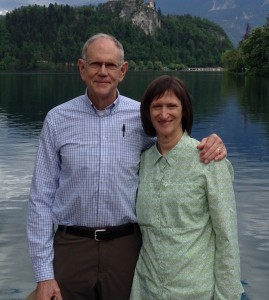
Charlie Bradley and Ruth Shults
What really impresses us about the Gillings School is not only its strong history as one of the top academic schools of public health, but also its zeal for and leadership in public health practice. — Dr. Ruth Shults
When Ruth Shults, PhD, and her husband Charlie Bradley decided to endow a scholarship for the study of injury epidemiology, there was more than one beloved alma mater from which they could choose. Because of Ruth’s positive experience as a doctoral student, they selected UNC Gillings School of Global Public Health. [Full Story]
John Wiesman- ‘I got all that and more’ from the Gillings School
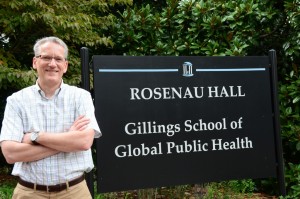
John Wiesman
It was clear that the faculty here, especially in this program, saw themselves as guides and that we were going through the journey together,” he says. “They learned as much as we did from the program, and they brought out the ability in us to learn from each other in the cohort. It modeled for us that learning is lifelong. — John Wiesman
When John Wiesman, DrPH, was searching for a doctoral program in leadership as a mid-career public health professional, he wanted one that allowed him to continue working full-time while studying full-time in a practice-based program—and to integrate that learning into his work along the way.He said he got all that—and more—from his experience at the UNC Gillings School of Global Public Health. Now, he wants to pay his good fortune forward with a legacy gift from his estate. The John Wiesman and Ted Broussard Scholarship fund, a gift made jointly with his husband, will support student scholarships in the Department of Health Policy and Management’s executive Doctor of Public Health program in leadership. [Full Story]


